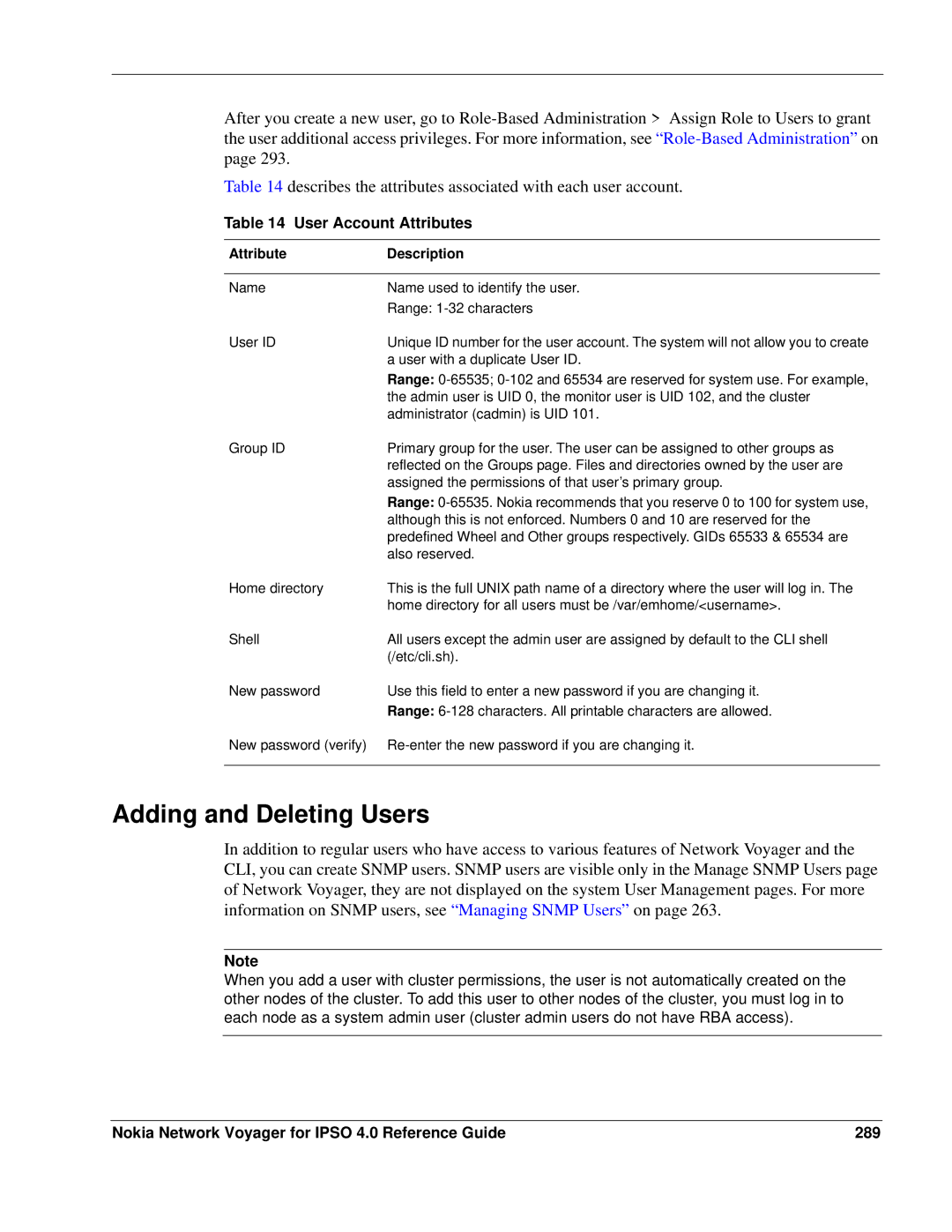
After you create a new user, go to
Table 14 describes the attributes associated with each user account.
Table 14 User Account Attributes
Attribute | Description |
|
|
Name | Name used to identify the user. |
| Range: |
User ID | Unique ID number for the user account. The system will not allow you to create |
| a user with a duplicate User ID. |
| Range: |
| the admin user is UID 0, the monitor user is UID 102, and the cluster |
| administrator (cadmin) is UID 101. |
Group ID | Primary group for the user. The user can be assigned to other groups as |
| reflected on the Groups page. Files and directories owned by the user are |
| assigned the permissions of that user’s primary group. |
| Range: |
| although this is not enforced. Numbers 0 and 10 are reserved for the |
| predefined Wheel and Other groups respectively. GIDs 65533 & 65534 are |
| also reserved. |
Home directory | This is the full UNIX path name of a directory where the user will log in. The |
| home directory for all users must be /var/emhome/<username>. |
Shell | All users except the admin user are assigned by default to the CLI shell |
| (/etc/cli.sh). |
New password | Use this field to enter a new password if you are changing it. |
| Range: |
New password (verify) | |
|
|
Adding and Deleting Users
In addition to regular users who have access to various features of Network Voyager and the CLI, you can create SNMP users. SNMP users are visible only in the Manage SNMP Users page of Network Voyager, they are not displayed on the system User Management pages. For more information on SNMP users, see “Managing SNMP Users” on page 263.
Note
When you add a user with cluster permissions, the user is not automatically created on the other nodes of the cluster. To add this user to other nodes of the cluster, you must log in to each node as a system admin user (cluster admin users do not have RBA access).
Nokia Network Voyager for IPSO 4.0 Reference Guide | 289 |
